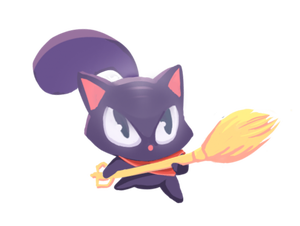
Featured Blog | This community-written post highlights the best of what the game industry has to offer. Read more like it on the Game Developer Blogs or learn how to Submit Your Own Blog Post
5 ways to find team members
Developing a game can be done alone, but scaling a business requires a team. What are the tips and tricks to find people that not only have the relevant skill sets, but also fit your team's culture.

So you have a game idea, but you do not have unemployed friends with the necessary skills to make it? Maybe you are a programmer and need an artist or vice versa. This is something new game developers struggle with more than you might realise. We have a lot of single developers approaching us at shows or even submitting applications to GameFounders saying it is difficult to find a co-founder. Sometimes that results in games being cancelled or developed with the help of paid freelancers.
The problem is not only with developing the game, but also finding investors, publishers or other partners- people want to see a functioning team instead of the struggling single founder. Below are some ways to find the team mates you need to make your game and build your studio. The list has been mainly compiled by talking to developers and asking how they met their co-founders.
1. Game Jams. This is an obvious one. Look for game jams, hackathons or other events where people come together to build products. The setup gives you the opportunity to assess the skills of the person in action, so you can see if they are a good fit for your team. You also see how they act and react in stressful situations, which studios have every day. Game Jams do not happen every day or even every month, so read further.
2. College courses. Check out which colleges and universities near you teach game-related diciplines, that you need. There are multiple ways to approach this- through the lecturers, student organisation or students directly. You can ask to spread the word on what you are offering and se if it works. Students can be very motivated and fast, but might not have the best skills, so give them a small trial project before you make your selection.
3. Game associations' meetups. The associations work differently depending on country, so figure out what you have near you. You can look at both game developer associations (usually IGDA chapters) or studio-based associations. They have events, show up, show your game and tell them what you are looking for. The first person might not join, but their friend could! Finding a co-founder already working in the industry gives you some assurance of their quality level and work ethic.
4. Game conferences. Another great place to find people from the industry. Again, established studios, indies, even service providers can all know someone, who is the perfect match to what you are looking for. Be open and share your plans so people can help you. If you have a game, join the indie contest or showcase and even more people will be inspired by your game and want to join.
5. Social networks. All of the above mentioned groups and many more have social network presence. Be it pages, groups or other, thousands of people exchange information on social networks every day, so why not make it work for you. Post something about your games and what you are looking for and actively engage people to help you. You might find someone from another country, but today teams are often virtual anyway.
I hope the main point that came through was to be open and active. Ideas are not worth nearly as much as products, keep that in mind and you will find someone who thinks the same way in no time. Well some time, but soon!
GameFounders is a startup accelerator and pre-seed fund working exclusively with game studios. Established in 2012, GameFounders started its operations in a hub in Europe, Estonia and in 2015 expanded with opening a hub in Malaysia to cover Asia. GameFounders selects its portfolio studios from a global pool with applications from 75 countries so far. The best 10 teams move to the GameFounders hub for 3 months and go through a mentoring program giving them a boost to build their business. The teams will also have access to a wide array of partnership deals, small investment and a network of mentors. As of end 2015 GameFounders has made 38 investments in studios from 20 countries.
More info at gamefounders.com
The picture used in the post is original art from Catgear Games from Malaysia.
Read more about:
Featured BlogsAbout the Author(s)
You May Also Like







.jpeg?width=700&auto=webp&quality=80&disable=upscale)








